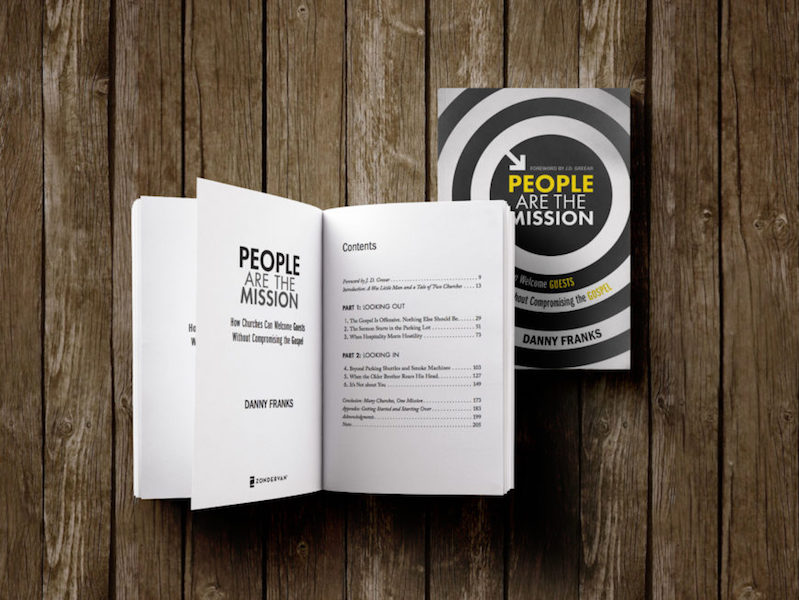People Are The Mission: Sneak Preview (ch. 1)

Last week I spilled the beans that Zondervan is releasing my first book, People Are The Mission, on Tuesday, March 6. Each Monday until the release date I’m sharing brief excerpts from the book. I’d love to hear your feedback!
Excerpt from chapter one, The Gospel Is Offensive. Nothing Else Should Be.
Churches should be a safe place for the offended and a challenging place for the tolerant. The weekend gathering should point people beyond their preferences and peculiarities and to the life-changing power of God. It should be a time when we collectively come together to see that our individual story is just a tiny speck in the grander story of God’s design for humanity. When the people of God assemble, it should be less about grumbling, less about “Let’s all just get along,” and more about the grandeur of Jesus.
There’s just one small problem.
Typically, church people are among the worst when it comes to taking offense. We love to get offended when our nonbelieving friends and neighbors say or do anything that we perceive as an attack on our faith. We are quick to cry, “Persecution!” when our employer kindly asks us to stop passing out tracts or a Christian movie gets a bad review after a public release.* We are quick to ostracize our friends when their political proclivities don’t line up toe to toe with our religious persuasion. In an age of outrage, we’ve forgotten the subtle, fragrant aroma of graciousness.
That’s why it can be hard for us to see how Christian culture—and more specifically, our weekend gatherings—can be perceived as offensive to those on the outside. Because of our thin skin, we tend to view the weekend worship experience as our refuge from the world. We get to sing our songs, listen to our stories, sit in our pews, and do things our way. We fence ourselves off and barricade ourselves in against those evildoers on the outside. And we are a people who have become familiarly comfortable with the way we do things. Our traditions—for good or for bad—are our traditions.
But we need to avoid assuming that because churches are modern, progressive, or cutting edge, they’re any less traditional. Though you may slap new paint on old ways and give them a different name, you can still become entrenched in the way things are done in your particular fellowship. A drum set can be as much of a sacred cow as a pipe organ. Small groups can become as untouchable as Sunday school. And for that reason, we tend to protect our methods pretty fiercely. We dress them up in robes and liturgy. We modernize and rebrand them. We hold on to history or blaze new trails. Whatever you do, you probably are doing it because you think that’s the best way. It’s your way.
But is it something your surrounding community can understand? If someone comes into your church as a first-time guest, can they break through those traditions, decipher the secret handshake, and figure out your cultural code? Are your weekend services set up to serve you and those like you, or are they set up so guests see Jesus on display and are invited to engage with him? Do you meet people where they are, or must they work to crack the perimeter and get inside? We must remember that what is traditional for insiders can prove confusing for outsiders.
Is your church a chasm for seekers or a catalyst to Jesus?
* “You hated that movie because it was Christian!” “No, I hated it because the writing, acting, dialogue, photography, and special effects were so awful they’d make baby Jesus cry.”
Taken from People Are the Mission by Danny Franks. Copyright © 2018 by Danny Franks. Used by permission of Zondervan. www.zondervan.com.
